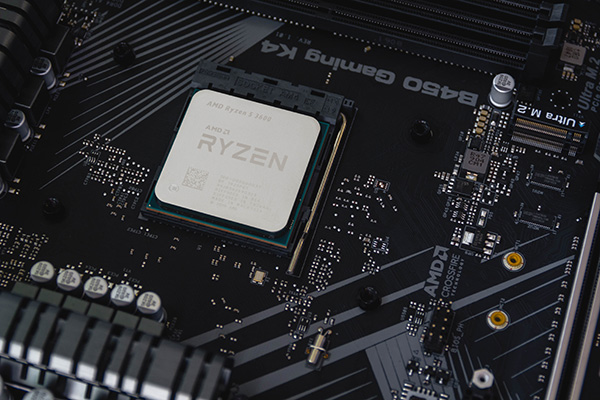In the last year conversations surrounding semiconductors has shifted from a sympathetic nod to its crucial role in the US economy.

By Isabella Perera, US Manager, Policy Innovation team
Semiconductors are the quintessential American invention, their development catapulting the tech industry to new heights. However, no longer are these chips solely a product of the US, with geo-political competition growing, global shortages hitting hard, and an international, governmental effort to get a slice of this multi-billion-dollar industry underway, the race to be a leader within the industry has truly begun.
In recent years, conversations around semiconductors have shifted from a sympathetic nod to their crucial role in the US economy to a sense of urgency in becoming the biggest and the best of the semiconductor industry. However, a concern has arisen amongst US industry decision-makers and government that the country’s innovative edge may be squandered through intellectual property thefts and forced technology transfers to global competitors.
With over 730 US firms involved with semiconductors, it’s an industry that can promise further growth given the correct environment. The recent US Innovation and Competition Act (USICA) bill passed by the Senate includes a proposed USD 52 billion to build US manufacturing capacity and improve domestic semiconductor supply chains. With this, however, comes a potential tightening of restrictions for businesses exporting semiconductors to China as the Biden administration weighs whether there is a need for implementing such restrictions in order to protect and maintain the US’s positioning in the industry.
It is expected for the US and EU to discuss potential problems posed by China’s trading practices during talks at this year’s Trade and Technology Council meeting which takes place on Wednesday and Thursday of this week. Despite the US’ suspected desire to establish an US-EU partnership in tackling the issue of China’s trade policies, the EU has hinted at taking a broader, more multilateral approach.
EU
Digital sovereignty is a larger European attitude towards lower dependence on non-European technology for digital infrastructure, as well as prioritization of security and resiliency for the European Union (EU) Single Market. In February, France and Germany drafted a joint use paper on the concrete industrial policy measures needed to reinforcing industrial and digital sovereignty. It would be beneficial for companies to seek out, partner, and engage with EU funding programs such as Horizon Europe to help the EU meet its digital transformations goals.
What Are the Strings Attached to US Funding?
Although the proposed funding is a great step forward for the semiconductor industry, it must be acknowledged that such funding may come with strings attached. A range of requirements may be necessary in the future which could potentially hinder current business practices. Such requirements could fall under three categories: Sustainability Requirements, Workforce and Training Requirements, and Rural Requirements.
Sustainability requirements
The semiconductor industry is already an acknowledged global leader in promoting environmental sustainability in its design, manufacturing, and use of its products. Companies such as TSMC have committed to reducing their carbon footprint immensely, it is expected that such caution should be taken with all companies as the true effects and consequences of climate change begin to wash up on our shores globally. Companies opening factories in the US should be aware of standards of compliance to clean air, and clean water.
Workforce and training requirements
In a 2017 survey of US semiconductor manufacturers, 77 per cent of respondents were convinced that a talent deficit existed within the industry. Another 14 per cent anticipated a critical deficit by 2020.
Other countries are throwing money at the problem as well. South Korea has injected billions into its semiconductor manufacturers, part of a national effort to reduce its exposure to geopolitical tensions. Also keen on establishing its digital sovereignty, the European Union will subsidize regional chip makers.
Yet to clear the backlog of job shortages, massive investments in STEM training alone will not suffice. Instead, a more competitive and diverse approach is required by the industry.
Rural requirements
Federal dollars may incentivize companies to locate factories in economically marginalized areas. In the recently published USICA bill, there was an allocation of resources to pair weaker research universities with top universities. This is to pump more into STEM education in rural communities and to fund domestic technology hubs that may mirror the successes of Silicon Valley.
Close
Although we are seeing immense investments at a global level, companies must be aware that these investments come with conditions. As the global leaders prepare for an increased self-reliance, the industry can expect increased scrutiny of intellectual property and technology transfers from the US and its allies to China.

Prior to joining Access Partnership, Isabella Perera worked as a Senior TMT Analyst in Accenture’s Strategy & Consulting practice. In this role, she supported both domestic and international companies to build data governance, privacy, and digital transformation programs. She also served on the Board of Directors for a non-profit and social impact consultancy and worked as an Associate Director for an education start-up.
Isabella holds a B.S. from Georgetown University’s Walsh School of Foreign Service. She has experience both studying and working in China and is particularly interested in the impact of ICTs on civic engagement and government accountability in the region. She speaks English, Mandarin Chinese, and Spanish.
Scott Ellyson, CEO of East West Manufacturing, brings decades of global manufacturing and supply chain leadership to the conversation. In this episode, he shares practical insights on scaling operations, navigating complexity, and building resilient manufacturing networks in an increasingly connected world.